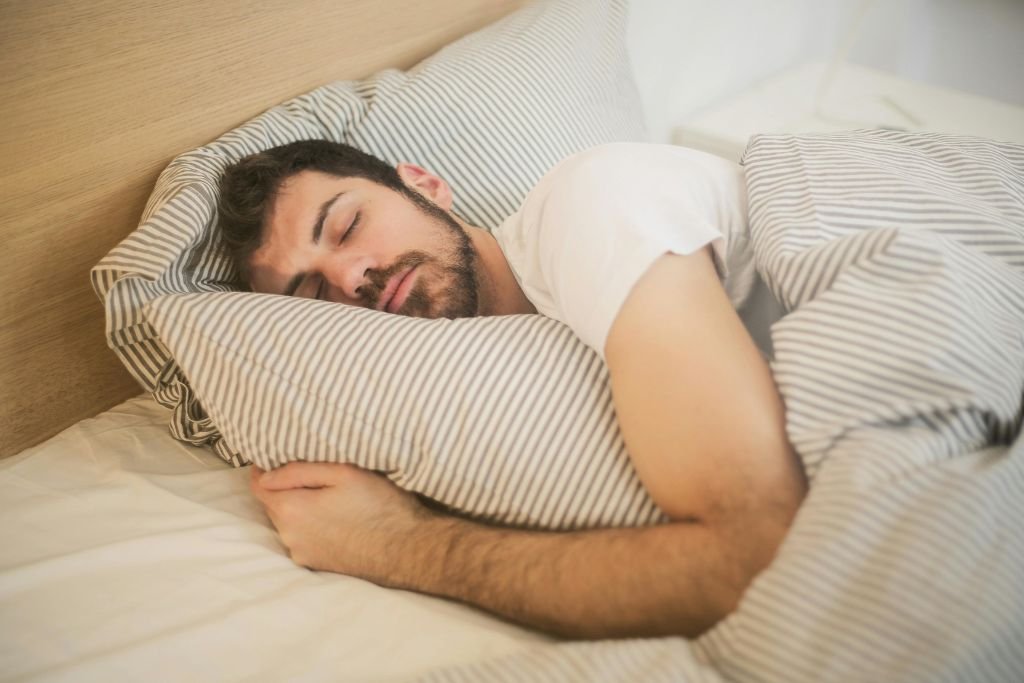How to Get Better Sleep Naturally

As someone who’s spent countless nights staring at the ceiling, I know how frustrating poor sleep can be. But I’ve learned that better sleep is within reach, and it doesn’t have to mean relying on pills. In this guide, I’ll share practical, natural strategies that have helped me—and can help you—improve sleep quality. From understanding your sleep cycles to creating a cozy bedroom sanctuary, let’s explore how to get the rest you deserve.
Why Sleep Matters
Sleep isn’t just about feeling refreshed—it’s a cornerstone of health. Studies show it strengthens your immune system, reducing your risk of illness. It also regulates mood, helping you stay calm and focused. Plus, sleep consolidates memories, making it easier to learn and recall information. When I started prioritizing sleep, I noticed I was less irritable and more productive.
Natural Approaches to Better Sleep
Natural solutions address the root causes of sleep issues, unlike medications that may cause dependency. By tweaking your bedroom setup, sticking to a sleep schedule, eating sleep-friendly foods, and managing stress, you can create a sustainable path to better rest. These methods have worked wonders for me, and research backs their effectiveness.
Getting Started
Start small—pick one or two strategies, like dimming lights before bed or cutting out late coffee. Track your progress with a sleep diary to spot patterns. If sleep problems persist, a doctor can check for underlying issues. With patience, you can transform your nights.
The Crucial Need for Quality Sleep (and Why Natural Solutions Matter)
Like many of you, I’ve had nights where sleep felt like a distant dream. Over 68% of Americans struggle with sleep at least once a week, according to a 2016 Consumer Reports survey. In our busy world, quality sleep is often the first casualty, yet it’s vital for our physical health, mental well-being, and daily performance.
Sleep does more than recharge us. It bolsters our immune system, making us less prone to colds, infections, stabilizes our mood, reducing stress and irritability. It also sharpens our memory, helping us retain and process information. Without enough sleep, we risk health issues like heart disease, diabetes, and obesity, not to mention feeling foggy and drained.
Sleeping pills might seem like an easy fix, but they can lead to side effects and dependency. That’s why I’ve turned to natural solutions. By tackling the causes of poor sleep—like stress or a noisy bedroom—I’ve found ways to rest better without medication. This guide will walk you through the strategies that have transformed my nights, from understanding sleep science to practical tips you can try tonight. Let’s make restful sleep a reality.
Understanding Your Sleep: The Foundations of Rest
To improve your sleep, you need to know what’s happening when you close your eyes—and what might be disrupting it.
The Science of Sleep Cycles
Sleep isn’t just one state; it’s a series of stages that cycle every 90 minutes or so. We have two main types of sleep: Non-REM (NREM) and REM (Rapid Eye Movement).
- NREM Sleep includes three stages:
- Stage 1: A light sleep where you’re drifting off.
- Stage 2: Your heart rate slows, and your body temperature drops, preparing for deeper rest.
- Stage 3 (Deep Sleep): This is when your body repairs tissues, builds muscle, and boosts immunity.
- REM Sleep: Your brain gets active, and you dream vividly. This stage is key for memory consolidation and emotional processing.
Adults typically need 4-6 cycles per night for optimal rest. Your circadian rhythm, a 24-hour internal clock, governs when you feel sleepy or alert, influenced by light exposure. Morning sunlight helps you wake up, while evening darkness signals it’s time to wind down. Understanding this helped me see why irregular schedules threw off my sleep.
Identifying Your Sleep Problems
When I started struggling with sleep, I didn’t know why. Was I taking too long to fall asleep? Waking up too often? Feeling groggy despite eight hours? Pinpointing your specific issue is the first step. Common problems include:
- Trouble falling asleep
- Frequent nighttime awakenings
- Waking too early
- Feeling unrefreshed in the morning
These can stem from stress, anxiety, poor habits, or medical conditions like insomnia or sleep apnea. I found keeping a sleep diary eye-opening. For a week, I jotted down my bedtime, wake-up time, how often I woke up, and how I felt. I also noted things like late coffee or stressful evenings. Here’s a sample:
| Date | Bedtime | Wake-Up Time | Awakenings | Mood/Energy | Notes |
|---|---|---|---|---|---|
| 2025-04-26 | 10:30 PM | 6:30 AM | 2 | Tired | Drank coffee at 3 PM |
This helped me spot patterns—like how caffeine after noon kept me wired. Try it to uncover your triggers.
Optimizing Your Sleep Environment: Creating a Sanctuary for Sleep
The Bedroom as a Sleep Haven
Your bedroom should feel like a retreat. I used to underestimate this, but small changes made a big difference. Here’s what works:
- Temperature: A cool room (60-67°F or 15-19°C) mimics your body’s natural drop in temperature during sleep. I use a fan or adjust the thermostat to stay comfortable.
- Darkness: Light suppresses melatonin, the hormone that helps you sleep. Blackout curtains or an eye mask have been game-changers for me, especially in bright urban areas.
- Quiet: Noise can jolt you awake, even if you don’t realize it. Earplugs or a white noise machine drown out distractions. I love my white noise app for its soothing rain sounds.
- Comfort: A supportive mattress and pillows tailored to your sleep position (side, back, or stomach) are worth the investment. Breathable cotton sheets keep me cool all night.
Declutter and Organize
A messy bedroom can stress you out, even subconsciously. I cleared out clutter—old papers, work stuff, random gadgets—and kept only calming items, like a small plant and a favorite book. A tidy space helps me relax and signals that my bedroom is for rest, not chaos.
Mastering Your Sleep Habits: The Power of Sleep Hygiene
Establishing a Consistent Sleep Schedule
Going to bed and waking up at the same time every day, even on weekends, syncs your circadian rhythm. I used to stay up late on Fridays, then sleep in, but it left me groggy—like mini jet lag. Now, I aim for 10:30 PM to 6:30 AM daily. If your schedule’s off, shift it gradually by 15 minutes each night.
The Bedtime Routine: Winding Down for Sleep
A relaxing pre-sleep routine tells your brain it’s time to rest. I start mine an hour before bed with:
- A warm bath with Epsom salts to soothe my muscles
- Reading a physical book (screens keep me awake)
- Gentle stretching or a 5-minute meditation
Avoid bright screens, as their blue light tricks your brain into staying alert. I use blue-light-blocking glasses if I must check my phone.
The Morning Routine: Setting the Stage for Better Sleep
Mornings matter too. I open my curtains to let in natural light, which resets my circadian rhythm. Skipping the snooze button prevents fragmented sleep, and a quick walk or stretch energizes me. A balanced breakfast, like oatmeal with fruit, keeps my energy steady, indirectly supporting better sleep.
The Role of Diet and Hydration in Sleep
Foods That Promote Sleep
What you eat affects how you sleep. I’ve added foods rich in:
- Tryptophan: Found in turkey, milk, and nuts, it helps produce melatonin.
- Magnesium: Leafy greens, bananas, and almonds relax muscles and nerves.
- Complex Carbohydrates: Whole grains like oats stabilize blood sugar.
A light bedtime snack, like a banana with almond butter, works for me. Avoid heavy meals within two hours of bed to prevent discomfort.
Foods and Drinks to Avoid Before Bed
Some things sabotage sleep:
- Caffeine: It lingers for up to 8 hours, so I cut off coffee by 2 PM.
- Alcohol: It might make you drowsy but disrupts deep sleep later.
- Sugary Foods: They spike energy, keeping you awake.
The Importance of Hydration
Dehydration can make you sluggish, but too much water before bed means bathroom trips. I sip water throughout the day, aiming for 8-10 glasses, and taper off in the evening.
Harnessing the Power of Movement and Exercise
Exercise is a sleep booster. Regular activity reduces stress and regulates your sleep-wake cycle. I aim for 30 minutes of moderate exercise, like brisk walking, most days. Morning or early afternoon workouts are best—late intense sessions can rev you up. For evenings, I do gentle yoga or stretching to unwind.
Managing Stress and Anxiety for Peaceful Sleep
Identifying Your Stressors
Stress kept me awake for years. Work deadlines, family worries, or even small annoyances would spiral in my mind. I started noting what stressed me out—often things I could address earlier in the day, like planning tomorrow’s tasks.
Relaxation Techniques
To calm my mind, I use:
- Deep Breathing: Inhale for 4 seconds, hold for 4, exhale for 4. Repeat 5 times.
- Progressive Muscle Relaxation: Tense and release each muscle group, starting from your toes.
- Mindfulness Meditation: Focus on your breath for 5 minutes, letting thoughts pass without judgment.
The Worry Wind-Down Routine
I write down worries in a journal an hour before bed, along with a quick action plan or a note to deal with it tomorrow. This “brain dump” clears my head for sleep.
The Potential of Natural Supplements and Remedies (with Caveats)
Supplements can help, but they’re not a cure-all. Always check with a doctor, especially if you’re on medication.
- Melatonin: A hormone that regulates sleep, it’s great for jet lag or shift work. I take 1-3 mg 30 minutes before bed when needed.
- Magnesium: I use 200-400 mg of magnesium citrate to relax my muscles.
- Herbs: Valerian root, chamomile tea, or lavender oil may calm you, but evidence is mixed. I sip chamomile tea for its soothing ritual.
Supplements work best alongside good sleep habits, not instead of them.
When to Seek Professional Help
If natural methods don’t help after a month, or you experience:
- Persistent insomnia (trouble sleeping 3+ nights a week)
- Extreme daytime fatigue
- Loud snoring or gasping (possible sleep apnea)
- Restless legs or unusual sleep movements
…it’s time to see a doctor. A general practitioner or sleep specialist can diagnose issues like sleep apnea or insomnia. I ignored my snoring for years, but a sleep study revealed mild apnea, and treatment changed my life.
Embracing Natural Sleep for a Healthier Life
Better sleep has transformed how I feel—more energized, focused, and happy. By understanding your sleep, creating a restful environment, and building healthy habits, you can too. Start small, be consistent, and give it time. Natural solutions take effort, but they’re worth it for nights of deep, rejuvenating rest.
Sources
- Why Americans Can’t Sleep – Consumer Reports
- How Sleep Affects Your Immune System – Yale Medicine
- Sleep and Mood – Harvard Medical School
- Memory and Sleep – Sleep Foundation
To get more useful blog post like these one join the list!






